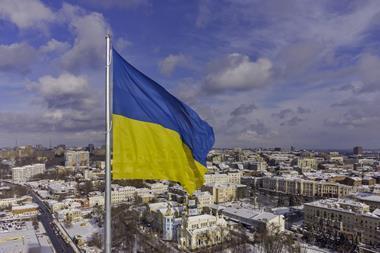There are many lessons to be learned from the rollout of the sanctions and ensuing compliance efforts
On February 24, 2022, Russia invaded Ukraine. The global condemnation of the invasion has included an unprecedented number of sanctions against Russia that began being issued almost immediately and has continued as the war goes on.
The number of sanctions issued against Russia (more than triple those issued against Iran, the country with the next-highest number) and the speed at which the sanctions were issued in the days following the invasion are unmatched.
There are many lessons to be learned from the rollout of the sanctions and ensuing compliance efforts. Global coordination works in principle, but not in practice, points out Protiviti.
”As unified as the Western countries and their allies have been on the need to sanction Russia and who and what should be targeted by the sanctions, the rollout of the sanctions quickly disclosed not just subtle nuances but also significant differences in how the sanctions were propagated,” it notes in a commentary.
”Some of these differences were administrative, but others were structural (eg, one country sanctioned a named entity only, but another sanctioned a named entity and all its subsidiaries).
”These variations resulted in massive compliance challenges for global financial institutions that were required to reconcile national differences.”
Reputational risks
Lack of enforcement may also undermine the effectiveness of a national sanctions regime.
“However, in the case of the Russian sanctions, where reputation management has been as important as technical compliance, the issue may be less about whether financial institutions would do the right thing than whether jurisdictions had the power and political will to go after offenders,” adds Protiviti.
Other lessons learned relate to the operations of individual institutions’ sanctions programmes:
Some risk assessments are underdeveloped. Some institutions were clearly better prepared than others to know where to look for customers and transactions exposed to the risks of Russian sanctions. Those institutions had a clear advantage over institutions that had failed to consider contagion risk in their risk assessment processes.
Tuning a sanction screening system is not just something done to satisfy the regulators. Financial institutions that decided dealing with the noise of a poorly tuned sanction screening was easier than developing and maintaining an ongoing tuning programme likely added significantly to their compliance burden.
. . the rollout of the sanctions quickly disclosed not just subtle nuances but also significant differences in how the sanctions were propagated.
Not all sanction screening vendors are equally dependable. Some financial institutions learned at the most inopportune time that the vendors they relied on to update sanctions lists were not prepared to deal with the pace of change witnessed with the Russian sanctions.
Insurance disputes test sanctions clauses
As a result of the disparity in compliance efforts and enforcement challenges, a number of insurance disputes have arisen from the Russia-related sanctions, according to Clyde & Co.
“We anticipate the numbers rising further, with sanctions clauses likely being increasingly tested both in the UK and other jurisdictions,” commented Christopher Hill, partner at Clyde & Co.
“Certain classes of business (such as those with an aviation touchpoint) have already seen large claims made by insureds, some of which are currently the subject of disputes in the UK courts. We anticipate that this trend will extend to a number of further classes of Russia-related business.
“As the year progresses, we will likely see further restrictions imposed by the UK and the EU in response to the ongoing conflict in Ukraine. Indeed, the EU imminently intends to designate more entities and individuals involved in spreading misinformation and to extend export restrictions on further categories of goods.
“In addition, looking ahead, we anticipate that there will be an increasing focus from UK and EU authorities towards enforcement to further deter non-compliance.
The last 12 months have seen an unprecedented wave of sanctions imposed against Russia. This has created disruption for insurers with respect of their Russia related business.
“Moving from a period of intense introduction and implementation of sanctions to a more business as usual trading environment comes with its own challenges however, which will no doubt keep sanctions compliance at the forefront of insurers’ minds.”




















No comments yet